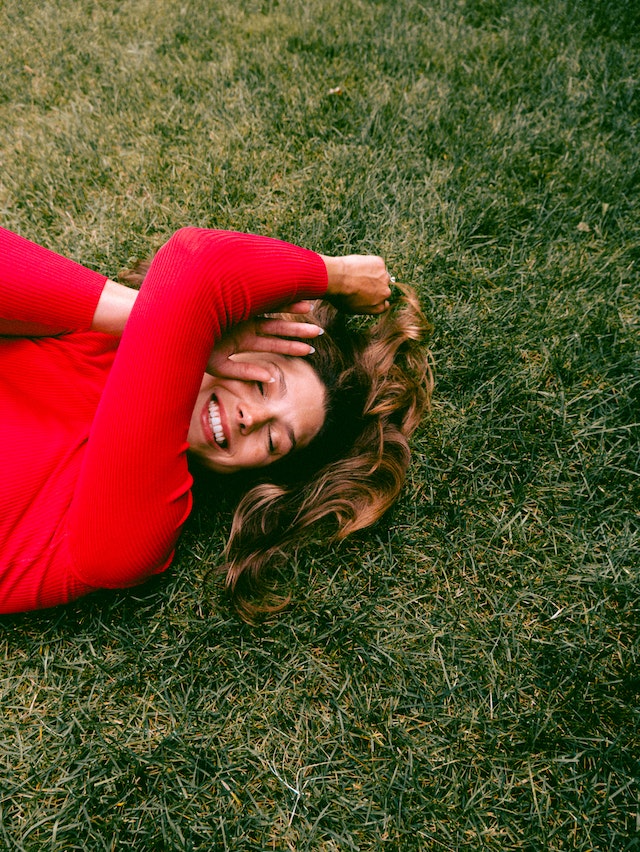如何在HTML中创建浮动布局?
布局使网页看起来更好,并排列网页上的视觉元素。它确定了网页的整体外观。
HTML 布局指定网页上不同组件的排列方式。许多 HTML 元素定义了网页的不同部分。
以下是用于 HTML 布局的 HTML 元素:
| 序号 | 属性和描述 |
|---|---|
| 1 | header 它指定网页内容部分的标题。 |
| 2 | section 它表示网页上的内容部分。 |
| 3 | nav 它指定网页上导航链接的容器。 |
| 4 | index 它指定附加信息,并不总是需要添加到网页上。 |
| 5 | aside 它指定网页内容之外的内容。 |
| 6 | footer 它指定网页上某一部分的页脚。 |
以下是用于 HTML 网页布局的 CSS 属性:
CSS float 属性
CSS flexbox
CSS 框架
CSS grid
HTML表格
我们使用 CSS 属性 float 来在 HTML 中创建浮动布局。float 属性允许我们将元素浮动到网页的左侧或右侧,并允许文本环绕对象(图像或框)。float 用于创建网页布局。
以下是 float 属性的属性:
left − 元素浮动到网页内容的左侧。
right − 元素浮动到网页内容的右侧。
none − 元素不浮动。
语法
<style= “float:right”>
示例 1
下面是一个在网页上浮动元素的示例。
我们可以在网页上浮动图像、文本和其他内容。
<!DOCTYPE html> <html> <head> <meta charset="UTF-8"> <meta http-equiv="X-UA-Compatible" content="IE=edge"> <meta name="viewport" content="width=device-width, initial-scale=1.0"> </head> <body> <h1><span style= "color: red;float:right">Mr. Bean</span></h1> <p> Mr. Bean is a British sitcom created by Rowan Atkinson and Richard Curtis, produced by Tiger Aspect and starring Atkinson as the title character. </p> <p> <img src="" style="float:left;width:80px;height:80px;"> Mr. Bean is a British sitcom created by Rowan Atkinson and Richard Curtis, produced by Tiger Aspect and starring Atkinson as the title character. </p> </body> </html>
下面是网页的示例 HTML 布局。
示例 2
下面是用于 HTML 布局的所有不同元素的示例。
<!DOCTYPE html> <html> <head> <meta charset="UTF-8"> <meta http-equiv="X-UA-Compatible" content="IE=edge"> <meta name="viewport" content="width=device-width, initial-scale=1.0"> <style> .head{ font-size:17px; margin-left:10px; margin-bottom:15px; } body { margin: 0 auto; background-position:center; background-size: contain; } .menu { position:static; top: 0; background-color:skyblue; padding:10px 0px 10px 0px; color:white; margin: 0 auto; overflow: hidden; } .menu a { float: left; color: white; text-align: center; padding: 14px 16px; text-decoration: none; font-size: 20px; } .menu-log { right: auto; float: right; } footer { width: 100%; bottom: 0px; background-color:slategrey; color: #fff; position: absolute; padding-top:20px; padding-bottom:50px; text-align:center; } .body{ margin-left:10px; } .aside{ right:inherit; float: right; width: 20%; } </style> </head> <body> <header> <div class="head"><h1><span style="color: red">NPTEL</span></h1> Online Learning Initiatives by IITs and IISc funded by MoE, Govt. of India</div> </header> <div class="menu"> <a href="#home">HOME</a> <a href="#course">COURSE</a> <a href="#help">HELP</a> <a href="#about">ABOUT</a> <a href="#settings">SETTINGS</a> <div class="menu-log"> <a href="#login">LOGIN</a> </div> </div> <div class = "body"> <section id="Content"> <h3>1.6 crore+ enrollments<br> 15 lakhs+ exam registrations<br> 4500+ LC colleges<br> 3500+ MOOCs completed<br> 60+ Industry associates</h3> </section> </div> <div class="aside"><aside>1.3 Billion+ views<br> 37 lakhs+ YouTube subscribers<br> 2300+ unique courses available for self study</aside> </div> <footer style="font-size: 20px">Documents Careers Help Videos Live Sessions Information on NPTEL semesters </footer> </body> </html>
以下是上述示例程序的输出。
示例 3
您可以尝试运行以下代码,在 HTML 中创建上述浮动布局。
<!DOCTYPE html> <html> <head> <style> div.mycontent { width: 100%; border: 1px solid green; } header, footer { padding: 1em; color: green; background-color: #FAFAFA; text-align: left; } nav { float: left; max-width: 150px; padding: 1em; } nav ul { list-style-type: none; padding: 0; } article { margin-left: 10px; border-left: 1px solid gray; padding: 1em; overflow: hidden; } </style> </head> <body> <div class="mycontent"> <header> <h1>Tutorialspoint.com</h1> <h3>Simply Easy Learning</h3> </header> <nav> <ul> <li><a href="/tutorialslibrary.htm">Tutorials Library</a></li> <li><a href="/videotutorials/index.htm">Video Tutorials</a></li> <li><a href="/codingground.htm">Coding Ground</a></li> <li><a href="/tutor_connect/index.php">Tutor Connect</a></li> <li><a href="/online_dev_tools.htm">Tools</a></li> </ul> </nav> <article> <h1>About Us</h1> <p>This is demo content.</p> <p>This is demo content.</p> <p>This is demo content.</p> <p>This is demo content.</p> </article> <footer>Add the footer content here</footer> </div> </body> </html>

广告

 数据结构
数据结构 网络
网络 关系型数据库管理系统 (RDBMS)
关系型数据库管理系统 (RDBMS) 操作系统
操作系统 Java
Java iOS
iOS HTML
HTML CSS
CSS Android
Android Python
Python C语言编程
C语言编程 C++
C++ C#
C# MongoDB
MongoDB MySQL
MySQL Javascript
Javascript PHP
PHP